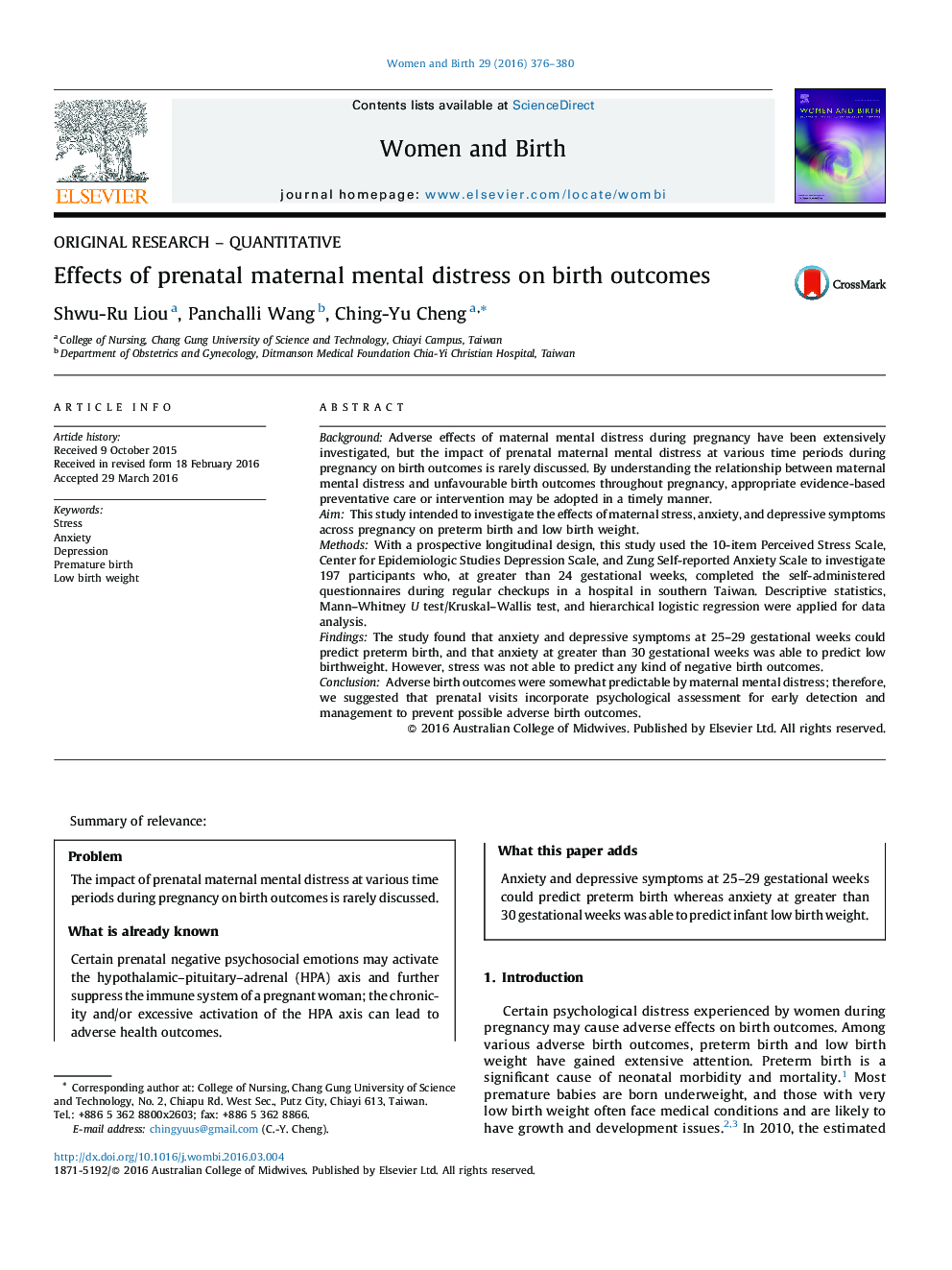| Article ID | Journal | Published Year | Pages | File Type |
|---|---|---|---|---|
| 2636553 | Women and Birth | 2016 | 5 Pages |
BackgroundAdverse effects of maternal mental distress during pregnancy have been extensively investigated, but the impact of prenatal maternal mental distress at various time periods during pregnancy on birth outcomes is rarely discussed. By understanding the relationship between maternal mental distress and unfavourable birth outcomes throughout pregnancy, appropriate evidence-based preventative care or intervention may be adopted in a timely manner.AimThis study intended to investigate the effects of maternal stress, anxiety, and depressive symptoms across pregnancy on preterm birth and low birth weight.MethodsWith a prospective longitudinal design, this study used the 10-item Perceived Stress Scale, Center for Epidemiologic Studies Depression Scale, and Zung Self-reported Anxiety Scale to investigate 197 participants who, at greater than 24 gestational weeks, completed the self-administered questionnaires during regular checkups in a hospital in southern Taiwan. Descriptive statistics, Mann–Whitney U test/Kruskal–Wallis test, and hierarchical logistic regression were applied for data analysis.FindingsThe study found that anxiety and depressive symptoms at 25–29 gestational weeks could predict preterm birth, and that anxiety at greater than 30 gestational weeks was able to predict low birthweight. However, stress was not able to predict any kind of negative birth outcomes.ConclusionAdverse birth outcomes were somewhat predictable by maternal mental distress; therefore, we suggested that prenatal visits incorporate psychological assessment for early detection and management to prevent possible adverse birth outcomes.
